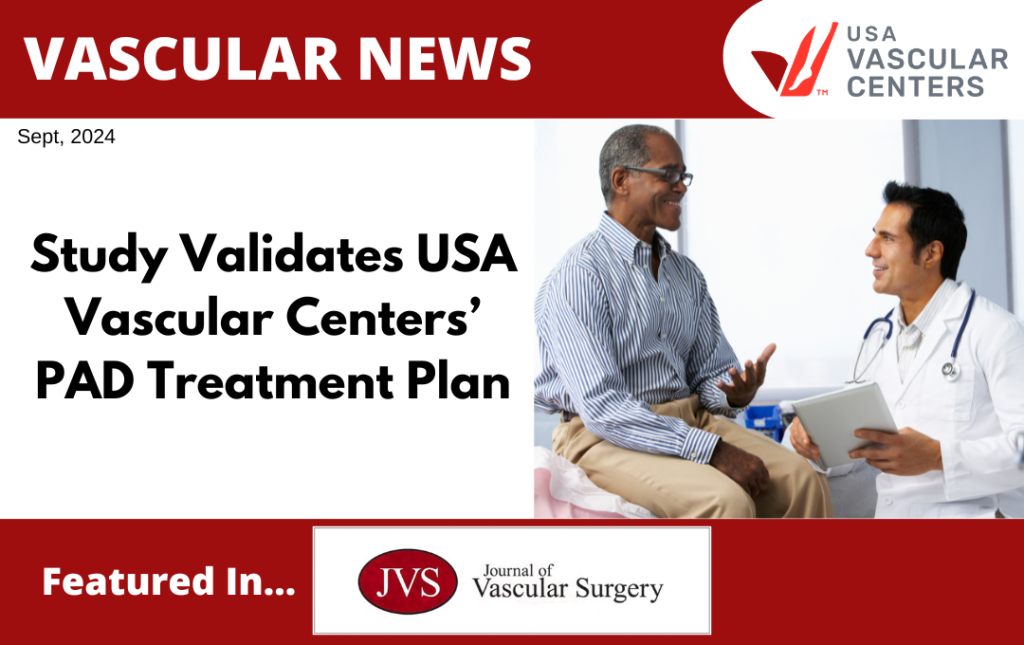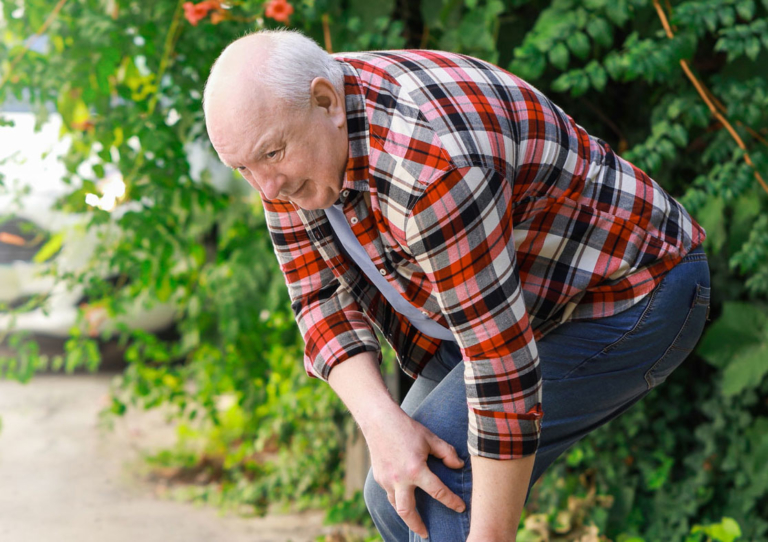A new study from the Journal of Vascular Surgery suggests that a combination of medications and lifestyle changes can significantly improve outcomes for patients with peripheral artery disease (PAD). USA Vascular Centers already offers this treatment plan, along with minimally invasive procedures to help patients manage their condition.
This plan is called Optimal Medical Therapy (OMT), a preventative measure involving a combination of medications and lifestyle changes to prevent blood clots, reduce cholesterol, and help PAD patients who smoke quit. OMT is implemented before revascularization, a procedure that restores optimal blood flow to blocked arteries caused by plaque buildup.
Examples of revascularization procedures include the following:
- Angioplasty: guiding an uninflated balloon into the affected artery and inflating it to push plaque against the artery walls, allowing better blood flow.
- Stent placements: inserting a small mesh tube into the blocked artery to hold the artery open.
- Atherectomy: removing plaque in the arteries by using a laser or tiny blade attached to a catheter.
Researchers wanted to see how Optimal Medical Therapy affected the risk of amputation and receiving the procedure to unblock arteries again after one year. The results verified that OMT can reduce the risk of amputation and reduce repeating the procedure by about 30 percent.
If a PAD patient is taking medications as prescribed and staying smoke-free, they are less likely to receive another treatment to manage PAD symptoms. They are also less likely to develop ischemia, when blood flow to the limb is severely reduced and results in amputation. It’s important to take preventative measures to avoid serious complications from PAD, including heart attack, stroke, and amputation.
USA Vascular Centers encourages those experiencing symptoms of PAD to get screened and diagnosed. Some symptoms include leg pain, leg claudication (leg cramping), hair loss in the legs, and difficulty walking. Early detection and treatment can limit risks of serious complications from PAD and reduce symptoms.
Read the full study here.

